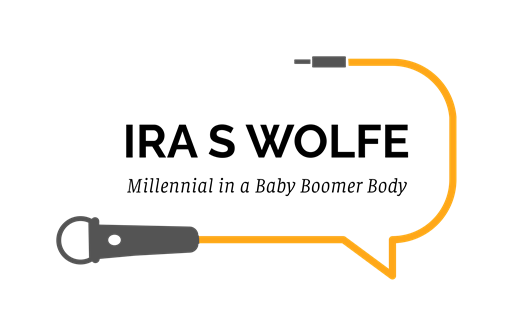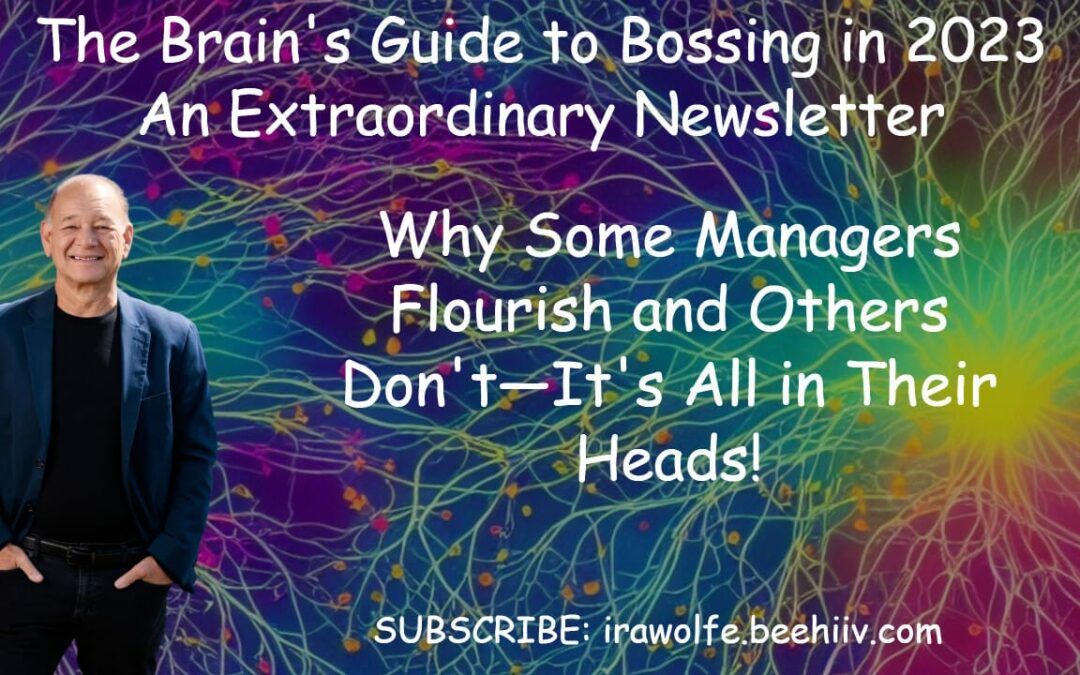Wiring the Future: Why Some Managers Flourish and Others Don’t—It’s All in Their Heads!
Ever sat there, gobsmacked, wondering why some managers lead like they’ve been sprinkled with some sort of success fairy dust while others seem to be wading through a never-ending swamp of bad decisions? Is it luck? Charisma? An Illuminati membership?
Nope. Drumroll, please… It’s Neuroscience! 🎉
That’s right, the secret sauce behind today’s managerial all-stars isn’t confined to just their business acumen or how many inspirational TED Talks they’ve consumed. It’s what’s happening between their ears—in that three-pound universe known as the brain—that truly sets them apart. And the best part? It’s not just for the elite few; neuroscience holds the keys to success for us mere mortals too.
So grab your neurons and fasten your seatbelts; we’re diving into why the worlds of neuroscience and the future of work are as inseparable as peanut butter and jelly, or remote work and pajama bottoms.
Why are Neuroscience and the Future of Work a Match Made in Synaptic Heaven?
Emotional Intelligence (EQ): Studies show that high levels of EQ are directly linked to greater job performance. Neuroscience helps us understand how the brain processes emotions. Managers, say bye-bye to the age-old “It’s not personal, it’s just business.” It’s all personal, folks!
Decision-making: Ever felt foggy at work? Your prefrontal cortex might be to blame. Understanding this can help managers create an environment that nudges employees towards better decisions. Decision fatigue, be gone!
Stress Management: Nobody likes a stressed-out colleague. Knowing how the brain reacts to stress can help you implement initiatives like mindfulness programs, or at least a less cringe-worthy “unwind hour.”
The Big R’s: Recruitment, Retention, and Remote Engagement
Recruitment: Wave goodbye to the trusty ol’ resume as the gold standard. Neuroscience-backed assessments could evaluate the cognitive and emotional suitability of candidates more precisely. Hiring will shift from gut-feeling to “brain-feeling.”
Retention: Say goodbye to the “job satisfaction” era, a relic as outdated as flip phones. We’ve evolved to the “Employee Experience” age, a concept so immersive it makes job satisfaction look like a 2D cartoon in an IMAX world. Neuroscience is the VIP guest at this party, helping managers understand why certain tasks make employees’ brains light up like a Christmas tree, or why setbacks plunge them into a neural winter. In essence, it’s not just about keeping your team happy; it’s about curating a psychological journey so engaging, it deserves a standing ovation. If you’re still stuck in the ‘just satisfied’ zone, consider this your brain’s wake-up call to join the Employee Experience revolution.
Remote Engagement: This is the cherry on top. The same neurotransmitters that get you pumped in an office can be activated from a distance. Virtual team-building exercises, anyone?
To Infinity and Beyond: Managers, Don’t Be Left Behind!
Get Educated: The brain might not come with a user manual, but neuroscience studies are the next best thing. Read up, join webinars, or simply follow some brainy folks on Twitter.
Adapt Your Leadership Style: You can’t lead a remote team the way you manage an in-office squad. If you try, let me know how that goes (spoiler alert: it won’t).
Invest in Tech that Understands Humans: Choose platforms that encourage engagement, not just task completion. Humans are not robots… yet.
Listen: Ah yes, the old classic. But now, listen to understand, not just to reply. Your brain will thank you later.
Celebrate Wins, Both Big and Small: Dopamine, the feel-good neurotransmitter, loves this! And guess what? So do your employees.
Managers, the future of work is not just knocking on your door; it’s ringing the doorbell, sending you text messages, and waving through the window. Time to embrace the brave new world of neuroscience-guided work. After all, the times may be a-changin’, but the brain—you know, that gooey thing inside your head—remains at the heart of it all. Let’s use it to our advantage!
Understanding how our brains work is one sure fire way to stop the SHIFT from hitting your plans!
If you’re on Instagram, let’s connect!
Leading with Vulnerability: Is It a Weakness or Superpower
Jacob Morgan was taught that vulnerability was dumb and weak. Until he discovered the ability to lead with vulnerability is a human superpower. If you’ve ever pondered the fine line between showing vulnerability as a leader and exposing weakness, this episode was recorded for you. But this episode isn’t just for leaders because in the era of VUCA (Volatile, Uncertain, Complex, and Ambiguous), every human being on the planet must be vulnerable as well as more competent. Jacob reveals his own battle with vulnerability and how his own “tough guy” approach to challeng led to panic attacks. Addressing these challenges, fears, and hopes, he decided to interview over 100 CEO interviews and engage over 14,000 employees in his quest to reveal the secret sauce of the “Vulnerable Leader Equation.” Leadership + Vulnerability is tricky. Get it right and you’re a hall of famer. Get it wrong, and it’s a facepalm moment. So get ready to dive deep with Jacob to learn what it takes to lead with vulnerability and thrive in the age of Googlization.
Watch the REPLAY or catch the episode on your favorite podcast platform.
Click on one of the following to watch or listen.
Watch Now! YouTube
PREFER PODCASTS? Click Here!
DOWNLOAD Your FREE Copy of My New Book
It’s part of the fastest-growing personal development series in the world.
EVERY EMPLOYEE IN YOUR ORGANIZATION NEEDS A COPY!
Can I Ask A Favor?
Thanks for joining me again as I continue my myth-busting journey through the fascinating labyrinth of the human brain. I hope you’re enjoying my Brain Guide to Bossing series on debunking neuro-management myths enough to share this with just two connections.
If I didn’t earn your endorsement yet, please let me know what I need to do to improve.
And if you haven’t subscribed, please click here.

